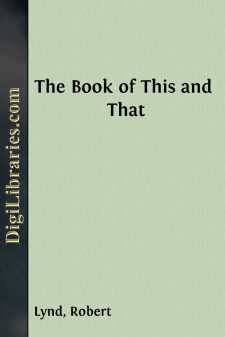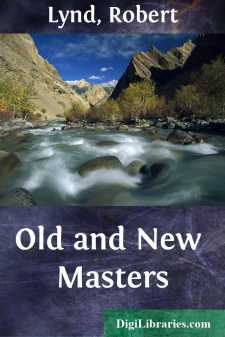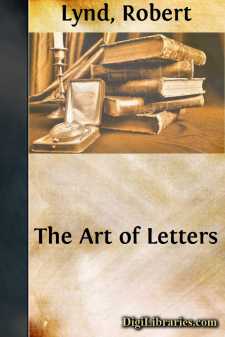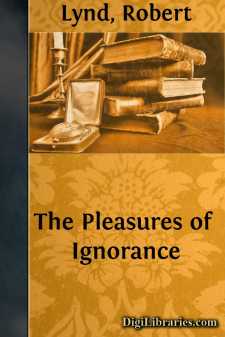Categories
- Antiques & Collectibles 13
- Architecture 36
- Art 48
- Bibles 22
- Biography & Autobiography 815
- Body, Mind & Spirit 144
- Business & Economics 28
- Children's Books 18
- Children's Fiction 14
- Computers 4
- Cooking 94
- Crafts & Hobbies 4
- Drama 346
- Education 58
- Family & Relationships 59
- Fiction 11834
- Games 19
- Gardening 17
- Health & Fitness 34
- History 1378
- House & Home 1
- Humor 147
- Juvenile Fiction 1873
- Juvenile Nonfiction 202
- Language Arts & Disciplines 89
- Law 16
- Literary Collections 686
- Literary Criticism 179
- Mathematics 13
- Medical 41
- Music 40
- Nature 179
- Non-Classifiable 1768
- Performing Arts 7
- Periodicals 1453
- Philosophy 65
- Photography 2
- Poetry 896
- Political Science 203
- Psychology 44
- Reference 154
- Religion 515
- Science 126
- Self-Help 85
- Social Science 83
- Sports & Recreation 34
- Study Aids 3
- Technology & Engineering 59
- Transportation 23
- Travel 463
- True Crime 29
Robert Lynd
Robert Lynd was an Irish writer and essayist, best known for his witty and insightful essays. Born in Belfast in 1879, he contributed regularly to publications like "The New Statesman" and "The Daily News". Some of his notable works include "The Pleasures of Ignorance" and "The Art of Letters," which showcase his love for literature, nature, and everyday life. His essays often reflect his keen observation, humor, and deep thought on a variety of subjects, making him a beloved figure in early 20th-century literature.
Author's Books:
Sort by:
by:
Robert Lynd
SUSPICION Suspicion is a beast with a thousand eyes, but most of them are blind, or colour-blind, or askew, or rolling, or yellow. It is a beast with a thousand ears, but most of them are like the ears of the deaf man in the comic recitation who, when you say "whiskers" hears "solicitors," and when you are talking about the weather thinks you are threatening to murder him. It is a beast...
more...
by:
Robert Lynd
I Mr. George Moore once summed up Crime and Punishment as "Gaboriau with psychological sauce." He afterwards apologized for the epigram, but he insisted that all the same there is a certain amount of truth in it. And so there is. Dostoevsky's visible world was a world of sensationalism. He may in the last analysis be a great mystic or a great psychologist; but he almost always reveals his...
more...
by:
Robert Lynd
I.—Mr. Pepys Mr. Pepys was a Puritan. Froude once painted a portrait of Bunyan as an old Cavalier. He almost persuaded one that it was true till the later discovery of Bunyan’s name on the muster-roll of one of Cromwell’s regiments showed that he had been a Puritan from the beginning. If one calls Mr. Pepys a Puritan, however, one does not do so for the love of paradox or at a guess. He tells...
more...
by:
Robert Lynd
I THE PLEASURES OF IGNORANCE It is impossible to take a walk in the country with an average townsman—especially, perhaps, in April or May—without being amazed at the vast continent of his ignorance. It is impossible to take a walk in the country oneself without being amazed at the vast continent of one's own ignorance. Thousands of men and women live and die without knowing the difference...
more...





